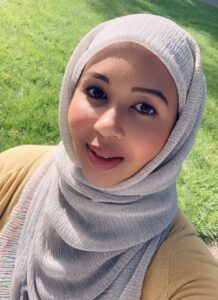 “The learning loss narrative does not bring us together. It’s not the teacher’s fault; it’s not one school. It’s a systemic problem that goes back to before the pandemic.”
“The learning loss narrative does not bring us together. It’s not the teacher’s fault; it’s not one school. It’s a systemic problem that goes back to before the pandemic.”
– Regina Elmi, Co-founder of Supporting Partnerships in Education and Beyond
As the country emerges from a global pandemic, we at Sound Discipline are paying attention to the conversation in education and policy circles about ‘learning loss.’ Applying the lenses of test scores, academic milestones, and SEL metrics, state and district superintendents are feeling and passing on the pressure to quantify and replace standards-based content not delivered in online classrooms. Meanwhile, parents and caregivers are paying attention to their kids’ overall well-being, and questioning the notion of “learning loss” altogether.
I had the opportunity to come together and learn in a Zoom room with Regina Elmi, co-founder of Supporting Partnerships in Education and Beyond (formerly Somali Parents Education Board). SPEB creates partnerships between schools and communities, supporting parents and students to embrace their dual culture while navigating the education system. Reflecting on the pandemic, Regina told a story about how her perspective evolved. At first when schools closed, she felt “terrified.” Her 8th grade daughter was coming into a critical year. Even though she was doing well academically, Regina worried she would feel isolated and like she was missing out.
What actually happened surprised her.
Regina noticed a kind of unexpected blossoming – her kids feeling more connected and rooted, speaking to one another in their heritage language, spending time with family, bonding, listening and learning about culture and ties to place and elders from far-away. Life, especially kids’ lives, were less frenetic. Instead of filling every minute, they had the time to learn new skills and discover passions like sewing and even web design. While families’ experiences were diverse, Regina noticed common threads throughout her community.
Another big change in the experience of learning and school — perhaps a wakeup call – has been the way teachers have been reaching out to connect with families, seeing students in their own contexts. Regina and other families experienced a connection with teachers that is simpler and richer than ever before.
Regina’s big insight – a confirmation rather than a new thought – has been how important it is for schools to center the experience of children. Learning loss, she says is the opposite of that. As the end of the school year approaches, she is asking:
- How can we not just go back to business as usual, kids in classrooms receiving standardized curriculum, going unseen, erased, and uninspired?
- How can we put students and families at the center and design with and around them?
- How can we value experience over outcomes?
- How can we support teachers to continue to connect and partner with families, and to build authentic relationships with students?
What do we need to do right now so we don’t forget the lessons from this year?
“On a larger scale, we have the opportunity now to pause, to ask: how do we build an education system that creates opportunity for adults and students where every child is met where they are at?” – Regina Elmi
Sound Discipline partner schools are deep into these questions. Despite being overwhelmed by a very hard year, educators are pushing through before the school year ends to reflect and make meaning of all they experienced and learned. They got to see kids being the experts, taking initiative, and using their voice. They got to experience authentic relationships with families. “Before, parents and caregivers came into my space, and my classroom, and I would tell them what they needed to do. Now, I am in their space, we are in partnership, figuring out what we need to do together.”
The language of learning loss is deficit language. It puts attention on an imaginary race (one that has a more pronounced impact on Black and brown students) with no winners. As we all know, education isn’t just academic. It’s SEL skills and problem solving and sensemaking. It’s socializing and adapting in times of conflict. Ultimately, it’s about becoming more human. By narrowing the focus to “learning loss,” we shut down the conversations, the learning, and the chance for collaborative reimagining of school.
I continued my conversation on this topic with Jessica Calabrese-Granger, Chief of School Improvement for the Renton School District. We discussed how schools can take the lessons learned from this past school year and focus on new ways of engagement as we move forward. Read part two here.
Andrea John-Smith is the Executive Director of Sound Discipline
**********
Sound Discipline is working for a world where children know they belong and can learn and thrive.
We partner with educators, organizations, and families to transform schools into equitable learning communities.
We bring together science-based, trauma-informed, restorative, and Positive Discipline practices to facilitate change in the ways adults see and respond to students.
Courageous Educators:
We facilitate school leaders and educators to build classroom communities and model an inclusive culture school-wide that promotes student agency and well-being.
Equitable School Systems:
We coach administrators and educators to use data to identify and implement solutions that address damaging systemic patterns of inequity that target Black and brown students.
Connected Families:
We train and coach families and caregivers in a child’s life to apply solution-oriented practices that instill critical social emotional life skills.
